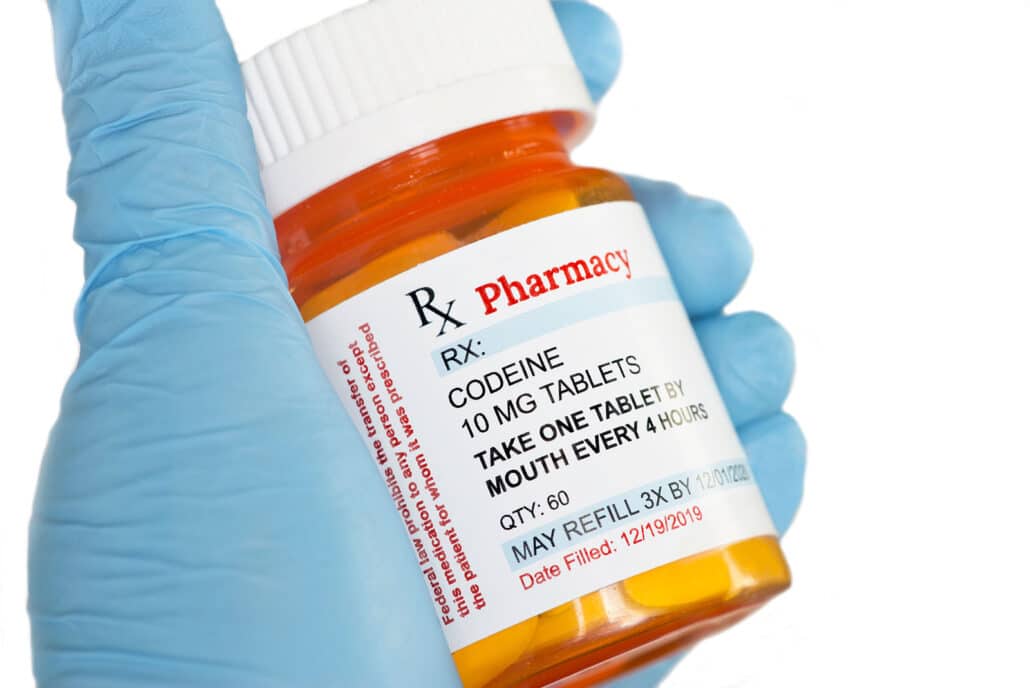Lean is a mixture of cough syrup and other sweet substances such as soda or candy. It is mostly used by teenagers and younger adults who are looking for an effective way to relax while at parties or at other events featuring large crowds. As with many other substances, individuals can become dependent on the codeine in cough syrup regardless of how much they have consumed or how long they have abused it.

Table of Contents
- 1 What Lean Does to the Body
- 2 The Side Effects of Lean
- 3 You Shouldn’t Try to Overcome an Addiction to Lean Without Help
- 4 Your Treatment Options
- 5 How Long Do Withdrawal Symptoms Last?
- 6 Medication May Be Used to Ease Your Symptoms
- 7 Mental Health Services May Also Be Available
- 8 Will I Need to Detox More Than Once?
- 9 Conclusion
- 10 FAQ
What Lean Does to the Body
Codeine is a depressant, which means that it will cause you to feel drowsy or as if you’re moving slower than everyone around you. Your heart rate and breathing will slow down, which may dull your senses and cause you to feel more relaxed while in a crowd.
The other impacts that this drink has will depend on what you put into it. Soda, candy or other items that are sweet or sugary may produce an initial burst of energy followed by a crash.
If you add alcohol to this beverage, you may have trouble walking, talking or remembering where you are. It’s never a good idea to drive or operate other types of machinery after consuming alcohol, and the same is true after consuming any beverage that may cause physical or mental impairment.
The Side Effects of Lean
While you may feel relaxed or happy when you first consume this beverage, the feeling will not last forever. In a matter of hours, you may begin to experience symptoms such as headaches, body aches or chills. You may also feel agitated or jittery until your body either clears the codeine out of your system or you ingest more of it.
You may also have trouble sleeping or have trouble staying awake while going through a withdrawal. Other possible symptoms include digestive issues, vomiting or an inconsistent appetite. Finally, you may have issues regulating your body temperature as this beverage can have a significant impact on your nervous system.
The nervous system is responsible for sending signals throughout the body that ensures that there is proper blood flow and pressure. If blood isn’t able to circulate to certain parts of your body, they may be colder than they should be.
You Shouldn’t Try to Overcome an Addiction to Lean Without Help
If you believe that you are dependent on this concoction, it’s important to understand that you’re unlikely to overcome that dependence on your own. This isn’t necessarily because you won’t be able to withstand the initial withdrawal symptoms. Instead, your major problem is that the addiction is in control whether you realize it or not.

Codeine is an opioid like heroin or many prescription painkillers, which is why you tend to feel better after you consume lean. Over time, opioids can change your body’s chemistry so that your body can’t function properly without them. Therefore, you’ll likely experience cravings and the temptation to use again for many months or years after your last drink.
In many cases, addiction is something that a person will deal with on a permanent basis. It’s also worth noting that an addiction to one substance may put you at a higher risk for addiction to other substances in the future.
This may be especially true if you have mental health issues such as anxiety or depression. It may also be true if you have a family history of addiction to drugs, alcohol or anything else.
Your Treatment Options
Broadly speaking, your options are to enter an inpatient treatment program or an outpatient treatment program. Inpatient programs tend to be best for those who are going through the withdrawal process for the first time or who have consumed a significant amount of this concoction over a few hours or days.
If this is your first time going through withdrawal, you won’t know which symptoms you’ll experience or how severe they may be. Therefore, it may be best to detox in the presence of medical professionals who can administer medications or otherwise help if an emergency situation arises. Symptoms may also be severe if you have consumed a significant amount of codeine or other ingredients that make lean so dangerous.
An inpatient program may also be ideal if you need time away from whatever may have triggered your dependence on this drink. A trigger is anything that gives you a craving to use such as a person, a particular day of the year, or a location where you experienced a traumatic event.
Outpatient treatment programs tend to be better suited to those who have overcome the initial withdrawal stage and need help staying sober. This type of program may also be ideal for those who may have been in the presence of illicit substances or people who use them and were tempted to do so themselves. Participating in a support group may enable you to refocus on your sobriety and surround yourself with people who will help hold you accountable for your actions.
How Long Do Withdrawal Symptoms Last?
Withdrawal symptoms can last anywhere from a few hours to a few days depending on how much lean is in your system and other factors relevant to your situation. In most cases, the worst of the detox process is over within a week to 10 days, and by two weeks after your last encounter with lean, any physical symptoms that linger should be fairly mild. However, you may still deal with mental health symptoms such as anxiety and a vague to a strong desire to keep using.

Medication May Be Used to Ease Your Symptoms
If you are participating in an inpatient program, the physician on duty will likely prescribe medication to help you deal with headaches, mood swings and other side effects. Medication may also be available if you are taking part in an outpatient program or are experiencing withdrawal symptoms that you’re trying to overcome on your own.
It’s important to be honest about your medical history when talking to a professional about potential treatment options. Doing so may lower the odds that you have been prescribed something that you’re allergic to or otherwise can’t take because of the risk that you may develop a dependence on it.
Mental Health Services May Also Be Available
Inpatient detox programs may provide you with an opportunity to work with mental health professionals in individual or group sessions. In some cases, you will take part in both individual and group sessions so that you have an opportunity to see that you’re not the only one struggling. The idea that you’re not alone in your recovery may serve as powerful motivation to keep working toward sobriety.
Will I Need to Detox More Than Once?
It’s possible that you will relapse while on your journey to a sober lifestyle. This means that you may need to go through the detox process multiple times. However, it’s important to understand that you are not a failure because you weren’t able to maintain your sobriety.
Instead, it’s important to remember that addiction is a powerful thing and that it isn’t always easy to control. The fact that you decided to seek help multiple times is a sign of your character and ability to commit yourself to live the best life possible.
Conclusion
If you are a friend or family member of someone who has relapsed, you may want to encourage that person to seek help again. In some cases, addicts may be more likely to go back to rehab after hearing someone else say that they haven’t failed and that they are still worthy of living a sober lifestyle.
An addiction to codeine or any other substance may have a significant impact on your life both now and in the future. However, if you are ready to seek help, the folks at Long Island Interventions are ready to provide it.
Please contact Long Island Interventions for information about Lean Addiction Treatment near you. If you have needs outside of the scope of what we provide, our team may be able to refer you to a treatment center that better meets your needs.
FAQ
How long does lean (codeine) stay in your system?

